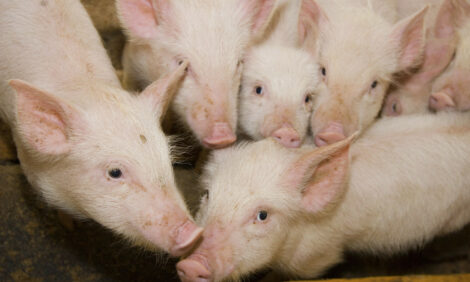



COOL: NFU Continues Fight, NPPC Welcomes delay
US - The argument continues between those for and against the labeling law. Here we have competing views from two of the industry's heavyweight organizations.
|
News Items
NFU To continue fight for COOLNPPC: COOL a "big win" for pork producers
NFU To continue fight for COOL
US – National Farmers Union blames meatpackers, large food processors and the Bush administration for the recent actions by the majority leaders of the appropriations conference committee to delay the mandatory country-of-origin labeling (COOL) law for two years.
“This two-year delay is undoubtedly a tactic to make this widely popular law more vulnerable to repeal after the presidential elections,“ said NFU President Dave Frederickson. “It is a travesty that U.S. consumers’ interests are losing out to pressure from the retailers, packers and processors, who all have aggressively fought this law since its inception.“
The delay will effectively kill COOL for meats, fruits and vegetables. Wild fish would be the only food item exempt from the delay, which should prove beneficial for salmon fishermen in Senate Appropriations Committee Chairman Ted Stevens’ state of Alaska.
“There is definitely something fishy about this process,“ Frederickson said. “When this law has been addressed in the light of day it has had broad bipartisan support. In 1998, the Senate passed COOL by a voice vote, only for it to be left on the chopping block floor behind closed doors. Thanks to the more than 50 million Americans who support COOL, it was revived and signed into law in the 2002 farm bill. The Senate recently revoiced its strong bipartisan support for COOL with 58 votes and now a deal has been struck behind closed doors by the majority leadership of the committees with no recourse for individual members of Congress except for an up-or-down vote on the omnibus spending measure. What is wrong with this picture?“
Frederickson said he has no doubt that the COOL law would have prevailed if the conference negotiations were conducted in a democratic fashion. Instead, the majority leadership of the conference committee reportedly excluded minority party members from the process.
“Consumers, farmers and ranchers will not stand for this kind of behind-the-scenes fleecing,“ Frederickson said. “To put this beneficial law on a shelf to wait for another subversive attack is unacceptable. We will not give up on this important legislation, which is an educational tool for consumers and a marketing tool for U.S. farmers and ranchers.“
Source: National Farmers Union - 25th November 2003
NPPC: COOL a "big win" for pork producers
National Pork Producers Council president Jon Caspers says the FY 2004 Ominbus Appropriations Bill blocking mandatory country-of-origin labeling until September 30, 2006, is a big win for the U.S. pork industry.
Final passage of the bill is expected when Congress returns.
Lawmakers opted for a two-year delay in implementing the controversial COOL provision, thus opening the door for further study of the law. “While NPPC continues to oppose mandatory COOL, the two-year time-out period should give all parties ample time to create a voluntary, market-driven framework,“ says Caspers.
“We must now work to resolve the many problems with mandatory COOL- its failure to raise hog prices long-term; exemptions for chicken and turkey products; a reduction in record U.S. pork exports and less than 50 percent of pork products would be covered by COOL.“
According to Caspers, NPPC will work with USDA and Congress to put in place a national animal identification system. “Such a traceability system must ensure that stringent measures are in place to provide accurate, affordable and effective animal health information in order to protect the health of the U.S. livestock herd,“ says Caspers. “This will guarantee that consumers are further assured of greater confidence in the U.S. food supply and enhance our ability to respond to an animal health emergency.“
Caspers says that once such a system is in place, NPPC will be able to work towards a workable, voluntary COOL program. Caspers says now that Congress has agreed to block the implementation of mandatory COOL, NPPC will turn its attention to the troubling issue of increasing imports of Canadian hogs and feeder pigs and the negative impact they have on U.S. hog prices.
Source: National Pork Producers Council - 25th November 2003













